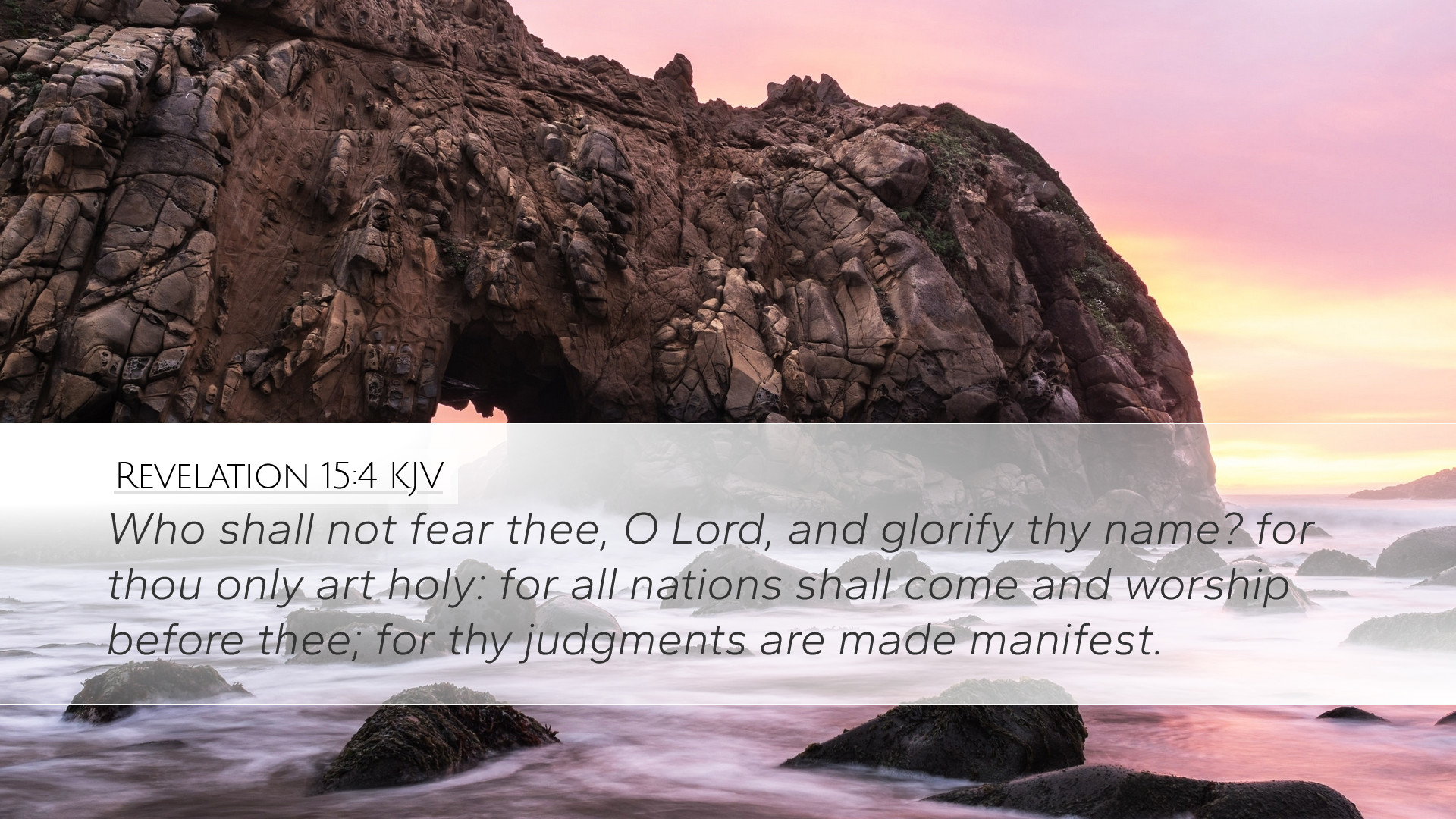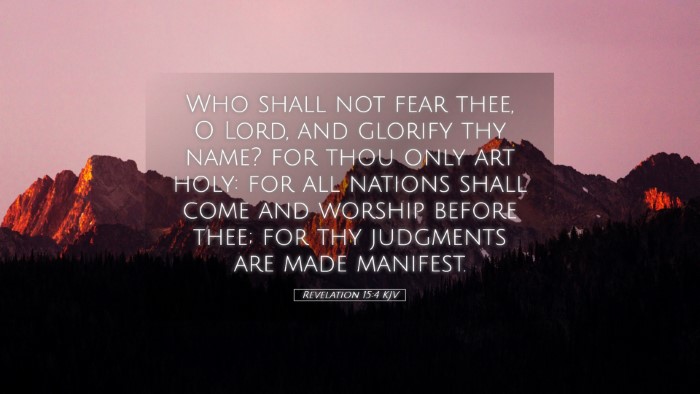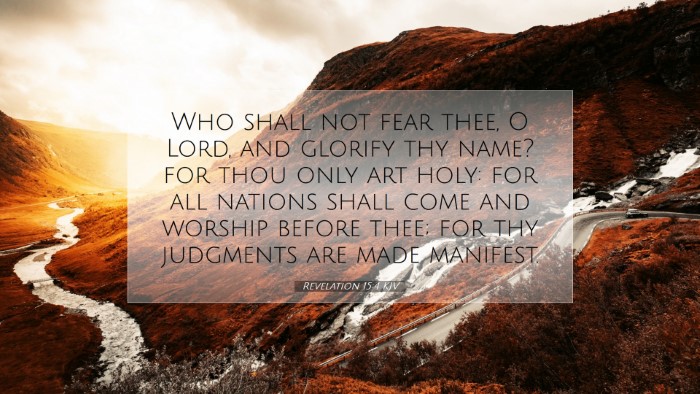Commentary on Revelation 15:4
Revelation 15:4 states:
"Who shall not fear thee, O Lord, and glorify thy name? for thou only art holy: for all nations shall come and worship before thee; for thy judgments are made manifest."
Introduction
This verse serves as a climactic affirmation of God's holiness, sovereignty, and the universal recognition of His authority. It is situated in the context of a vision given to John, highlighting the culmination of God's redemptive plan and judgment upon the earth. The theological implications embedded in this verse resonate through various facets of Christian theology, acknowledging God’s power and righteousness.
The Nature of God’s Holiness
Matthew Henry emphasizes that God's holiness is the foundation upon which His authority stands. Holiness is not merely a characteristic of God; it is His essence. Understanding God's holiness is crucial for the worshiping community, as it fosters a sense of reverence and awe.
- Holiness Defined: God's holiness represents His separation from sin and His absolute moral purity.
- Implications for Worship: True worship must be grounded in an understanding of God's holiness, leading to a transformative fear of the Lord that draws believers nearer to Him.
The Fear of God
Albert Barnes comments on the phrase "Who shall not fear thee, O Lord," noting that the fear of God is synonymous with reverence and respect. It is an acknowledgment of God’s absolute authority, which inspires worship and obedience among His creation.
- Universal Fear: This fear is not restricted to believers; it encompasses all nations, indicating a universal recognition of God’s power.
- Connection to Worship: True fear of God leads to genuine worship, an important theme in the apocalyptic literature of Revelation.
The Call to Glorify God’s Name
The question posed in the verse, "Who shall not fear thee," is rhetorical and asserts the inevitability of God receiving glory. Adam Clarke interprets this as an assurance that in the end times, every nation will acknowledge God's sovereignty and give glory to Him.
- Motivation for Worship: Glorifying God's name is not an option; it reflects the rightful response to His nature and deeds.
- Revelatory Nature of Judgment: God's judgments make His character known, thereby prompting nations to worship Him.
The Scope of Worship
The promise that "all nations shall come and worship before thee" indicates the inclusive nature of God’s kingdom. Matthew Henry points out the significance of this statement, as it speaks to the final restoration and gathering of all God's people, regardless of their background or ethnicity.
- Universal Reconciliation: This serves as a hope for the Church that God's mercy extends to all humanity, creating a multi-ethnic worshiping community.
- Judgment and Grace: While God’s judgments reveal His righteousness, they also serve a redemptive purpose, leading to worship.
God’s Judgments are Made Manifest
The latter part of the verse highlights that “for thy judgments are made manifest.” Albert Barnes reflects on this as a declaration of God's active role in history, executing justice and righteousness. The manifestation of His judgments is a call to recognize His authority.
- Visible Evidence: The judgments of God are not hidden but are evident in the world, urging humanity to recognize His sovereignty.
- Purpose of Judgment: The judgments serve to bring clarity about God’s righteous character and His expectations for justice in the world.
Theological Reflections
This verse is rich with theological insights that can inspire further reflection. It speaks to the nature of God and the essential responses required from humanity — fear, worship, and acknowledgment of His judgments.
- God’s Holiness and Justice: There is a profound connection between God's holiness and His judgments; His justice flows from His perfect nature.
- Hope for the Nations: This verse serves as a reminder of the hope that lies in the universal recognition of God. It inspires pastoral missions and intercessory prayer for all nations.
Conclusion
Revelation 15:4 encapsulates a future vision where all nations acknowledge God’s righteous rule, resulting in worship and glorification of His holy name. It calls Christians to live in the light of God’s holiness, engaging in both reverent fear and joyful worship, while actively participating in the unfolding narrative of redemption that God has planned for humanity.


